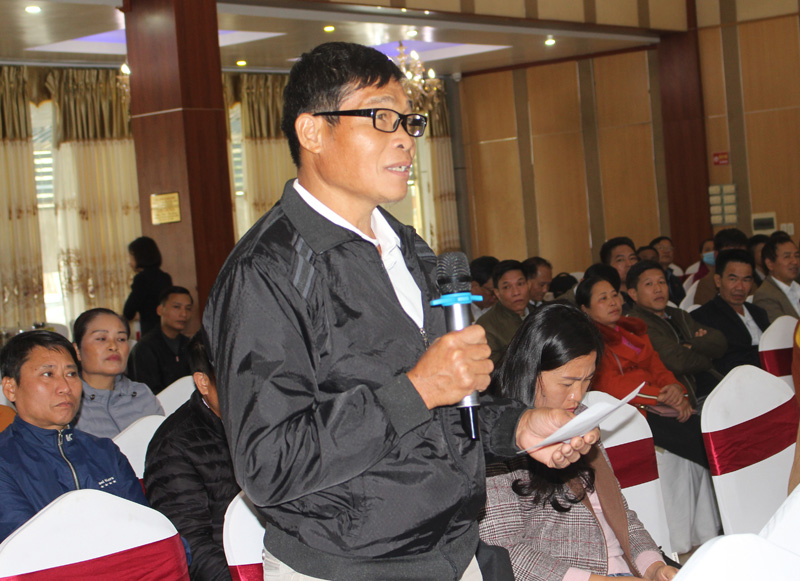


 Farmers take part in
and give ideas at the event.
Farmers take part in
and give ideas at the event.
In 2020, Vietnam has a total of 481 million of poultry, including 382 million of chickens, or 79.5 percent.
By the end of November, Hoa Binh had been home to 7.8 million poultry, which are mainly local varieties of Lac Thuy and Lac Son districts.
For animal husbandry, the OCOP programme helps promote specialties of each locality. Locals and collectives are owners of brands and directly earn profits from their products.
However, the farming of specialty chicken varieties is primarily at households. They are facing obstacles in terms of investment, technology, farming scale, production, trade promotion and intellectual property registration.
At the same time, the planning and development of specialty chicken varieties in keeping with the OCOP programme in localities are lagging behind.
The forum aimed to foster planning of farming areas and calling for the building of product linkages; to develop poultry farms in a bid to add values to and diversify products in line with the OCOP programme; and to re-organise production activities and raise quality of products.
It also offered chances for farmers to discuss with authorities, scientists and businesses in an attempt to devise solutions to difficulties in poultry farming, notably techniques to treat common diseases, application of scientific and technological advances, and measures to meet OCOP criteria.
Through the forum, firms, cooperatives and households were able to promote their products on mass media platforms./.